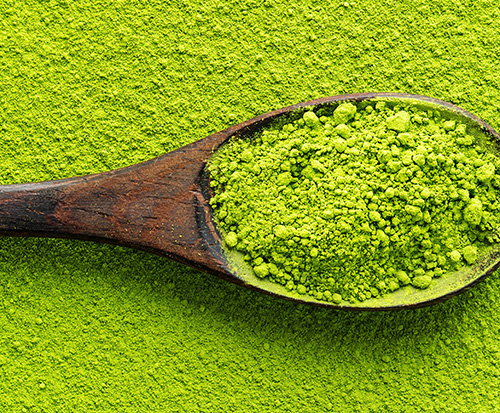Green tea what health benefits
Although coffee is the energy drink of choice for Italians, if you’re looking to do a little more for your health, it may be time to rethink your daily energy boost. Green tea has been consumed for centuries and is even revered in some parts of the world for its benefits. It has a different flavor profile than coffee and may take some getting used to, but many green tea drinkers who were initially wary now appreciate its peculiarities with every sip. You do not have to give up your cup of coffee completely to add green tea to your diet; you only need to reduce your intake to a single cup a day.
What is green tea?
After water, green tea is the most widely consumed beverage in the world. It is obtained by steeping the dried leaves of Camellia sinensis. All non-herbal teas are made from the leaves of this tea. The only difference between them (e.g., black tea and green tea) is the level of oxidation of the leaves before they are dried. Green tea consists of unoxidized leaves, making it particularly rich in antioxidants and polyphenols, and it is one of the least processed forms of tea available.
Benefits of green tea
The health benefits of green tea have been widely studied. Most of the health benefits of green tea are due to the high levels of polyphenols in the leaves. Most green tea contains about 30 percent polyphenolic compounds by weight.
- Green tea can help you lose weight
Weight loss is high on the list of health goals for many guys, and if you’re in that group, here’s a good reason for green tea: it has been shown to increase metabolic rate and fat burning. Along with caffeine, the catechins in green tea boost energy metabolism, increasing the rate at which your body burns calories, even at rest. Studies have also shown the ability of green tea to promote fat loss, particularly in the abdominal area, even in the absence of a significant calorie deficit. Although the most effective way to lose weight generally consists of following a healthy, low-calorie diet with regular physical activity, adding green tea to your weight loss plan can accelerate results.
- Green tea reduces inflammation
Green tea is rich in a compound called epigallocatechin-3-gallate (EGCG), which is well documented to have anti-inflammatory properties. Topical application of green tea extract has been shown to improve inflammatory skin conditions such as psoriasis, and green tea consumption reduces arthritis pain. In addition, many of the disease-fighting benefits of green tea are due to the anti-inflammatory effects of EGCG.
- Green tea reduces the risk of some cancers
Green tea is rich in antioxidants, which act as free radical scavengers and reduce oxidative damage in the body. In this way, antioxidants can prevent some of the cellular damage that can lead to certain types of cancer. Green tea consumption has been associated with reduced risk of breast, bladder, stomach, ovarian, lung, colorectal, skin, prostate, and esophageal cancer.
Japanese matcha in
special offer
- Green tea can improve heart health
Research has concluded that green tea can reduce the risk of heart disease, stroke and other cardiovascular diseases. This is thought to be attributable to polyphenols in green tea, which can lower blood pressure, decrease inflammation, improve epithelial function, and lower cholesterol, all risk factors for cardiovascular disease.
- Green tea may reduce the risk of diabetes
Some studies have found an inverse correlation between green tea consumption and diabetes risk. Green tea can help regulate blood sugar levels and increase insulin sensitivity, thus improving glycemic control. These effects seem especially powerful when combined with the Mediterranean Diet.
- Green tea may increase brain function
Green tea naturally contains caffeine, which can increase attention, alertness, and cognitive performance and reduce reaction time. These stimulatory effects of caffeine occur because caffeine blocks an inhibitory neurotransmitter known as adenosine. Thus, caffeine increases the rates of discharge between neurotransmitters and the concentration of dopamine and other neurotransmitters. Green tea also contains L-theanine, an amino acid that further increases dopamine levels and works synergistically with caffeine to improve brain function.
- Green tea may slow cognitive decline
Compounds in green tea also appear to improve memory and slow the rate of cognitive decline. Studies have shown the ability of green tea to reduce the risk of dementia and Alzheimer’s disease.
- Green tea can increase longevity
Given the litany of benefits associated with green tea consumption, it might come as no surprise that green tea also appears to increase longevity overall and reduce the risk of mortality from numerous causes. A large-scale 11-year study found that the highest level of green tea consumption (five cups per day) was associated with the lowest risk levels for all-cause mortality and cardiovascular disease mortality.




